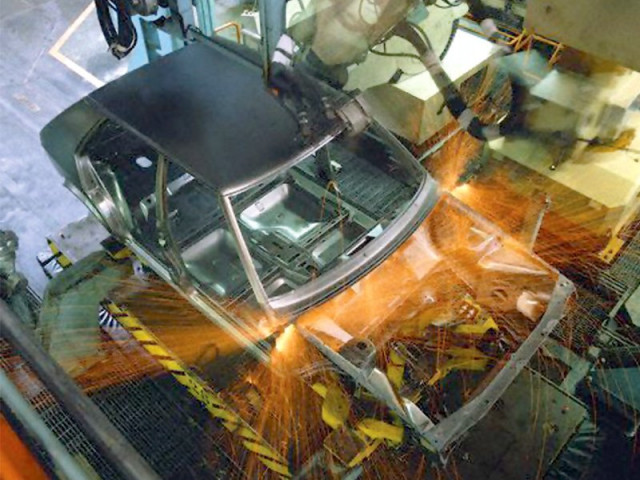Localisation brightens export prospects
Auto industry says it has helped to transfer technology, establish engineering base

Pakistan’s auto vendors are of the view that localisation has helped establish an engineering base in the country and encouraged transfer of technology, which has strengthened small and medium enterprises (SMEs) and opened doors for exports.
To date, the auto industry has enabled about 100 technical agreements for the transfer of technology.
“Contrary to the general perception, Japanese auto assemblers of the country have been doing their best for localisation and with an average of 50-70% localisation in locally produced cars, we have come a long way,” said Loads Limited, a Pakistani auto parts company, CEO Munir K Bana.
The auto industry is home to roughly three million direct and indirect labour, making it Pakistan’s largest manufacturing sector.
Starting in 1988 with a few companies, the Pakistan Association of Automotive Parts and Accessories Manufacturers (Paapam) has more than 350 registered members producing parts for the local auto industry, he added.
Referring to the perception that the locally assembled cars have become pricey without any value addition, officials of Japanese car manufacturing companies have said that the situation is quite opposite.
They said the prices had not increased but had been adjusted according to depreciation of the rupee against the dollar.
“Prices have, in fact, been reduced by the manufacturers but seem as if they have been increased since the rupee is depreciating in relation to the US dollar and the customer is paying more in rupee terms,” they said.
This is why, the dollar cost of locally made Corolla has dropped over the years as it is available at around $16,000 while its price was more than $20,000 in 1993, an official of a Japanese car manufacturer claimed.
“This shows that the net price of Corolla has declined consistently in dollar terms. This has been possible due to import substitution through localisation and technology transfer to Pakistan,” he added.
The auto sector officials were of the view that it was largely due to localisation that the Japanese players were able to survive the 2004 crisis, which led to the closure of four automakers.
The new auto policy is a beacon of hope and numerous auto players have entered the market but with the hike in duties and massive rupee depreciation, the industry is struggling to thrive, the vendors added.
“Localisation has two phases, first, to develop parts by meeting all engineering standards, and second, producing with consistent quality, timely and meeting cost expectation. This requires technology and management skills,” said PCI Automotive Director Mehdi Ali Rizvi.
Japanese original equipment manufacturers, along with Jetro and Jica, have provided ample opportunities to acquire knowledge and have created an enabling environment to localise more.
“For this to happen, all we need is a consistent and predictable government policy, without this we can only hope,” said Rizvi.
The automobile industry is recognised globally as the backbone of a nation’s economy, steering the overall economic growth to a broader and sustainable path, industry players say.
“Since its beginning, this sector has been extensively working on the localisation of parts manufacturing in Pakistan, and this is as per guidance of government policies. That is why we can witness that now hundreds of industrial units are working and support other associated industries as well,” said Razi Sons Director Wajeehuddin Siddique.
He added, “In this scenario, many expectations are from the government and auto assemblers that they will take the lead with sustainable policies and regulations. The ultimate goal is to prepare this sector for export of Pakistan-assembled vehicles to the international market.”
Nearly all industry players suggested that now a long-term solution was required to stabilise the rupee and stop its fall against the US dollar.
The auto sector must be assisted in reducing its exorbitant import bill because of rupee depreciation as it was affecting the sector’s cost competitiveness and negatively affecting the buyer’s purchasing power, they remarked.
Published in The Express Tribune, July 4th, 2020.
Like Business on Facebook, follow @TribuneBiz on Twitter to stay informed and join in the conversation.



















COMMENTS
Comments are moderated and generally will be posted if they are on-topic and not abusive.
For more information, please see our Comments FAQ